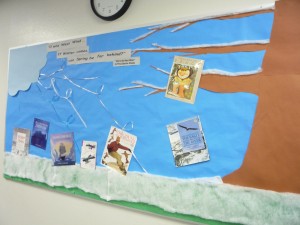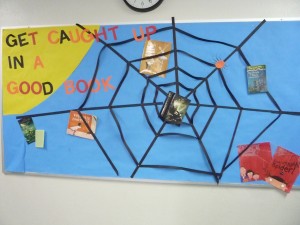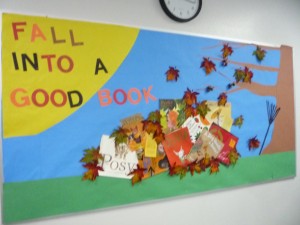Okay, that heading exaggerates. But kind of not.
Those of you who’ve been in a relationship of fairly significant duration know that there’s always a Big Nagging Issue (BNI). Some problematic way you have of relating to each other that crops up again, and again, and again, no matter how good everything else is. You knock it down, but it keeps popping up. Each time you have to knock it back, it feels like it sinks its claws in even deeper because you’re so sick of it that you wait longer and longer before you try to address it or you get more and more upset each time. Well, we’re in knocking back the BNI mode.
Frankly, it wasn’t going well, until I recently wrote my husband an email to explain, in a nonemotional setting, exactly why I’d been so upset the other night. He was out and I couldn’t sleep because my brain kept going round and round about the BNI and because there was real opportunity for confusing the issue. So I wrote the email like I used to write editorial letters: precise analysis tempered by compliments. Something I can’t do while in a face to face discussion in which my emotions have gotten out of hand (which is almost all of them regarding the BNI).
The next morning, he thanked me for the message and promised a response. A few days later, he sent me an email. And he had some requests for me. Trust me when I say this is revolutionary. I am an intense person, especially when upset. This was the first time he’d had the space to truly say his piece without me crying or jumping all over his wording. And then because this was an email, I had the chance to, privately, go through a whole cycle of upset, self-justification, and acceptance, to arrive at agreement. When I was calm, I wrote him back, asking for clarification/examples of one item.
I was thinking it’d be something minor, something tweakable. It wasn’t. It was the number one personality failing I have: my (especially lately) hair-trigger temper. This is the thing I am most ashamed of, the thing I try my hardest to contain already. It sucks to be called on your s#*!, because until you’re called on it, you can make like it’s a personal issue, not a marital or family issue. Now there’s no pretending.
Anxiety makes the problem worse, and I have a number of big things to be anxious about — imploding church, manuscripts out on query, BNI. So my church home, my potential career, and that pesky BNI are up in the air, which means that any other stressor gets a ridiculously huge response. So I take conversations with my dad way too personally and negatively. I make my kids cry about homework. My heart races at the towering household filing pile.
I don’t have a lot of power to change those big anxiety items, but I can take care of all the anklebiting items that add to it, like the household filing, the half-finished house projects lying around accusatorily, the making of summer plans for the kids. I can make sure I do my daily Bible reading and prayer. Lots of prayer. I can read things that help me put things in better perspective, like this. I can make sure I have fun with the people I love.
And, going back to the title of this piece, I can keep attacking the BNI via email with my husband. Social media may or may not be isolating us in the name of seeking connection, but email is my current favorite marital aide.


